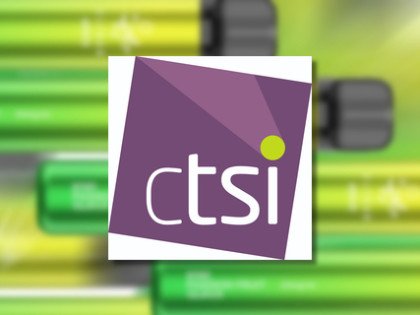The research briefing is part of a series of monthly updates aiming to provide an overview of new studies on electronic cigarettes. The briefings are intended for those involved in research or advocacy, and any others who may not have time to keep up to date with new findings and would like to access a summary.
“Association of Socioeconomic Position With e-Cigarette Use Among Individuals Who Quit Smoking in England, 2014 to 2019” by Kock, Shahab, West, and Brown – [link]
The researchers from University College London and the SPECTRUM Research Consortium in Edinburgh looked at whether socioeconomic position was associated with vaping and how use might have changed over time. We covered this study recently [link].
UKECRF commented: “This study only reported current product use at single time points. Therefore, it cannot tell us about patterns of use in individuals over time or determine causality. The sample size of the sub-group of participants who quit smoking in the past year without using e-cigarettes is small meaning the statistical power to detect a relationship is limited.”
The Forum believes the use of the National Readership Survey social grade system is “outdated”, and the study relied too heavily on self-reported cross-sectional survey data.
“Socioeconomic differences in motivation to stop using e-cigarettes and attempts to do so” by Jahnel, Ferguson, Partos, and Brose – [link]
The authors looked at how people quit the product they used to quit smoking. They found: “Higher socio-economic status may be associated with higher motivation to stop vaping but with lower likelihood of trying to do so.”
UKECRF said: “48% of participants were lost to follow up meaning the resulting sample was relatively small. This could have affected the accuracy of estimates. Respondents who were lost to follow up were more highly educated, had more income and were more likely to be employed which may have biased the results.”
It also questioned whether offering gift vouchers to take part in the survey could have led to selection bias and probably wasn’t reflective of the vaping population.
“Associations of Flavored e-Cigarette Uptake With Subsequent Smoking Initiation and Cessation” by Friedman and Xu – [link]
Coverage of this paper on Planet of the Vapes [link] highlighted their finding that flavours work for adults looking to quit smoking, but the pair added: “This study’s findings are consistent with concerns about e-cigarettes’ influence on minors’ tobacco use.”
The UKECRF pulled no punches on the suggestion they had evidenced a teen gateway effect: “The definitions of e-cigarette and cigarette use in the two categories were inconsistent. Adult smoking is defined by current use and vaping by ever use. Youth use of both products is defined by use in the past 30 days, which fails to distinguish between experimentation and regular use.”
“Due to inconsistency in product use definitions, participants who aged out of the youth category over the follow up period could not be included in the analysis. This limited the sample sizes of the youth and emerging adult groups, reducing statistical power.
“The study was unable to consider former smokers who may have already used e-cigarettes to successfully quit, or those who were already vaping at baseline. This may have impact estimates of cessation.
“Results were not adjusted for all confounders that might affect changes in patterns of e-cigarette and cigarette use, such as nicotine addiction, reasons for use, other risky behaviours and the external policy environment. Therefore, a causal relationship cannot be determined.
“Data were self-reported meaning they might be subject to bias.”
Other studies this month:
Patterns of use
- The moderating role of anxiety sensitivity in terms of fatigue severity and e-cigarette use expectancies.
- Prevalence of e-cigarette use among tobacco smokers in six states and regions of Myanmar.
- The effects of inhaled flavors on intravenous nicotine.
- The association of e-cigarette flavors with satisfaction, enjoyment, and trying to quit or stay abstinent from smoking among regular adult vapers from Canada and the United States: Findings from the 2018 ITC Four Country Smoking and Vaping Survey.
- Use of and perceptions about electronic nicotine delivery systems (ENDS) among people with mental health conditions or serious psychological distress, 2018.
- Factors influencing the uptake and use of nicotine replacement therapy and e-cigarettes in pregnant women who smoke: a qualitative evidence synthesis.
- A qualitative analysis of Māori and Pacific people's experiences of using electronic nicotine delivery systems (ENDS).
- High Prevalence of Tobacco Product and E-Cigarette Use among Electronic Dance Music Party Attendees.
- Correlates of youth vaping flavor preferences.
- Electronic Cigarette Use During Preconception and/or Pregnancy: Prevalence, Characteristics, and Concurrent Mental Health Conditions.
- What are the reasons that smokers reject ENDS? A national probability survey of U.S. Adult smokers, 2017-2018.
- Twenty-four-hour subjective and pharmacological effects of ad-libitum electronic and combustible cigarette use among dual users.
- Adult Use of and Transitions From Nicotine and Non-nicotine-Containing E-cigarettes: Data From the Population Assessment of Tobacco and Health (PATH) Study, 2013-2016.
Perception
- Young Adult Identification and Perception of Hashtag-Based Vaping Claims on Instagram.
- Knowledge and attitudes of adolescents to e-cigarettes: an international prospective study.
- Electronic nicotine delivery system (ENDS) use patterns and its associations with cigarette smoking and nicotine addiction among Asian Americans: Findings from the national adult tobacco survey (NATS) 2013-2014.
- The Effects of Self vs. Group Affirmation and Message Framing on College Students' Vape-Free Campus Policy Support.
- Valence of Media Coverage about Electronic Cigarettes and Other Tobacco Products from 2014-2017: Evidence from Automated Content Analysis.
- Development and Piloting Testing of an Experimental Tobacco and Nicotine Product Marketplace.
Cessation
- Socioeconomic differences in the motivation to stop using e-cigarettes and attempts to do so.
- Initial views and experiences of vaping in prison: a qualitative study with people in custody preparing for the imminent implementation of Scotland's prison smokefree policy.
- Intensive longitudinal study of the relationship between cigalike e-cigarette use and cigarette smoking among adult cigarette smokers without immediate plans to quit smoking.
Youth
- Evaluating the actual and perceived effectiveness of E-cigarette prevention advertisements among adolescents.
- 'Vaping and fidget-spinners': A qualitative, longitudinal study of e-cigarettes in adolescence.
- Trends and predictors of exclusive e-cigarette use, exclusive smoking and dual use among youth in Canada.
- Youth and Young Adult Use of Pod-Based Electronic Cigarettes From 2015 to 2019: A Systematic Review.
- Exposure to adverse childhood experiences and early initiation of electronic vapor product use among middle school students in Nevada.
- Welsh Primary Schoolchildren's Perceptions of Electronic Cigarettes: A Mixed Methods Study.
- Bullying Victimization and e-Cigarette Use among Middle and High School Students.
Harms and harm reduction
- Adverse effects of electronic cigarettes on the disease-naive oral microbiome.
- Electronic nicotine delivery system design and aerosol toxicants: A systematic review.
- Estimating the population health impact of recently introduced modified risk tobacco products: a comparison of different approaches.
- IMPACT OF E-CIGARETTE LIQUID FLAVORING AGENTS ON ACTIVITY OF MICROSOMAL RECOMBINANT CYP2A6, THE PRIMARY NICOTINE-METABOLIZING-ENZYME.
- E-Cigarette Liquid Provokes Significant Embryotoxicity and Inhibits Angiogenesis.
- ENDS Aerosol-induced Cell Death and Dysfunction in Macrophages and Lung Epithelial Cells.
- Indoor Air Quality and Passive E-cigarette Aerosol Exposures in Vape-shops.
- ENDS use among college students: Salivary biomarkers and persistent cough.
- Relation between Tobacco Smoking/Electronic Smoking and Albuminuria/Vascular Stiffness in Young People without Cardiovascular Diseases.
- Free Radical Production and Characterization of Heat-Not-Burn Cigarettes in Comparison to Conventional and Electronic Cigarettes.
- Passive Exposure to Pollutants from a New Generation of Cigarettes in Real Life Scenarios.
- E-vapor aerosols do not compromise bone integrity relative to cigarette smoke after 6-month inhalation in an ApoE-/- mouse model.
- Airway basal cell injury after acute diacetyl (2,3-butanedione) vapor exposure.
- Cytotoxic and genotoxic effects of e-liquids and their potential associations with nicotine, menthol and phthalate esters.
- Use of Electronic Cigarettes and Self-Reported Chronic Obstructive Pulmonary Disease Diagnosis in Adults.
Marketing
- #toolittletoolate: JUUL-related content on Instagram before and after self-regulatory action.
- Compliance with FDA nicotine warning statement provisions in e-liquid promotion posts on Instagram.
- An Analysis of E-Cigarette Marketing in New Zealand Tobacco Retail Outlets Prior to Legislative Change.
Exposure to Multimedia Tobacco Marketing and Product Use Among Youth: A Longitudinal Analysis.
Misc
- GC-MS analysis of e-cigarette refill solutions: A comparison of flavoring composition between flavor categories.
- Might limiting liquid nicotine concentration result in more toxic electronic cigarette aerosols?
- Exposure to JUUL use: cue reactivity effects in young adult current and former smokers.
- Flavor-specific enhancement of electronic cigarette liquid consumption and preference in mice.
- Characterization of Nicotine Salts in 23 Electronic Cigarette Refill Liquids.
- Rapid Brain Nicotine Uptake from Electronic Cigarettes.
- Development and Piloting Testing of an Experimental Tobacco and Nicotine Product Marketplace.
- Policies for Tobacco and E-Cigarette Use: A Survey of All Higher Education Institutions and NHS Trusts in England.
Dave Cross
Journalist at POTVDave is a freelance writer; with articles on music, motorbikes, football, pop-science, vaping and tobacco harm reduction in Sounds, Melody Maker, UBG, AWoL, Bike, When Saturday Comes, Vape News Magazine, and syndicated across the Johnston Press group. He was published in an anthology of “Greatest Football Writing”, but still believes this was a mistake. Dave contributes sketches to comedy shows and used to co-host a radio sketch show. He’s worked with numerous start-ups to develop content for their websites.
Join the discussion
Trading Standards Welcomes Clarity
The Chartered Trading Standards Institute says it welcomes the “clarity and action from government to tackle youth vaping” with the plan to ban disposable vapes and related announcements
UKVIA Writes To Sunak
The UKVIA has sent a letter to Prime Minister Rishi Sunak to 'express profound dismay and disappointment' that the government has decided to proceed with a ban on disposable vapes
FOI Shows Disposables Ban Folly
389 Freedom of Information requests made by leading online retailer Vape Club and one by the BBC demonstrate the extent to which a ban on disposable vapes is a complete act of folly
ASH UK’s Coordinated Comment
Action on Smoking and Health has coordinated a series of responses to the Governments proposals to include interested parties











